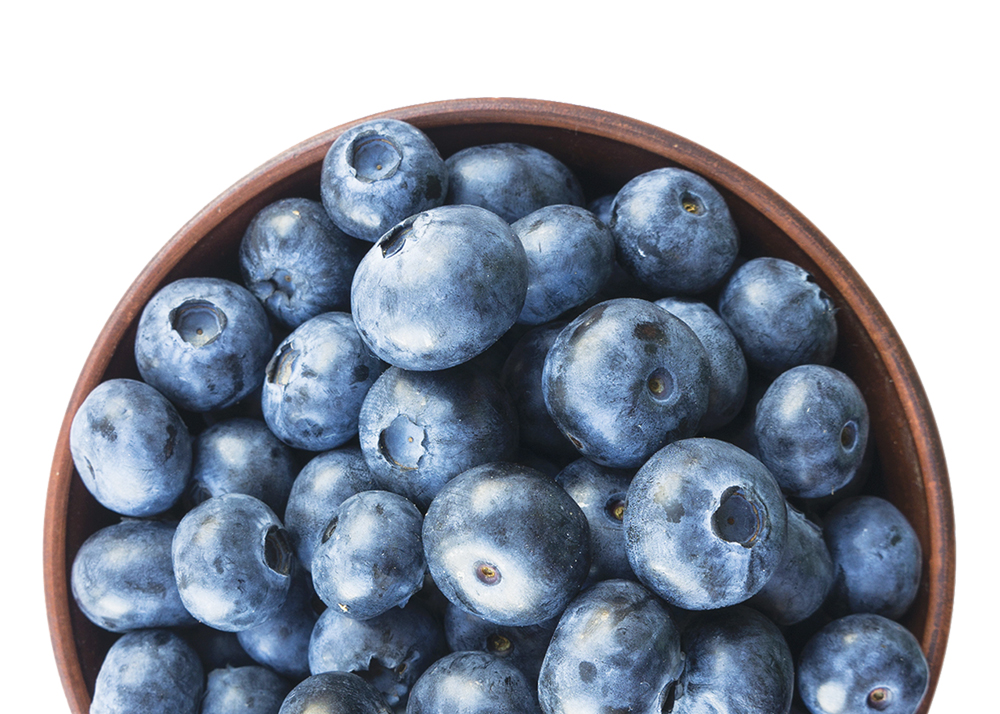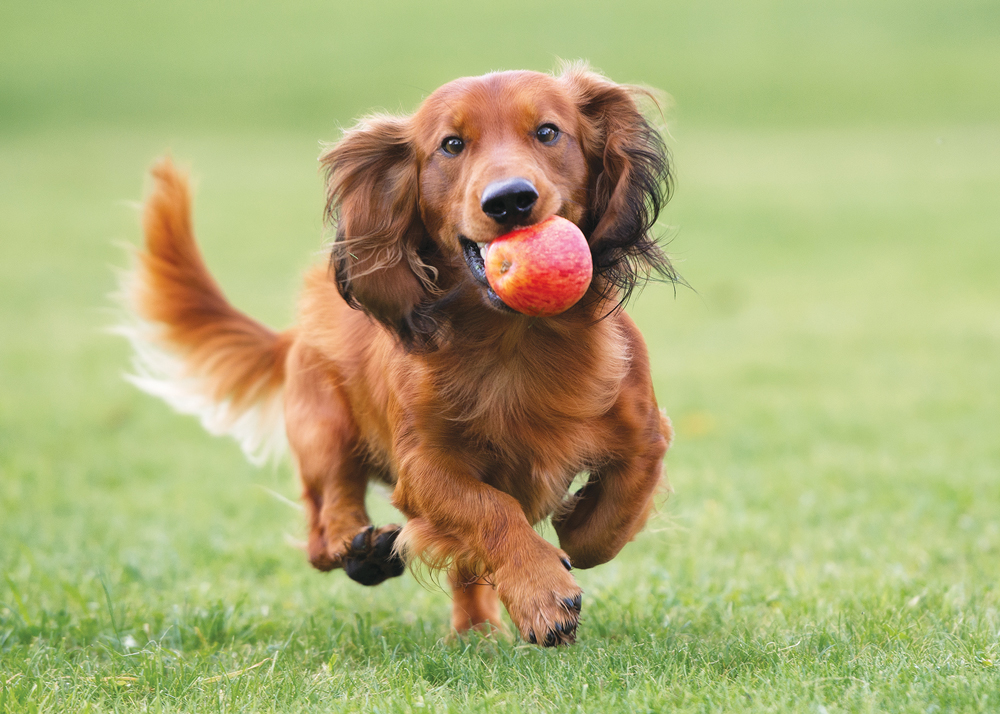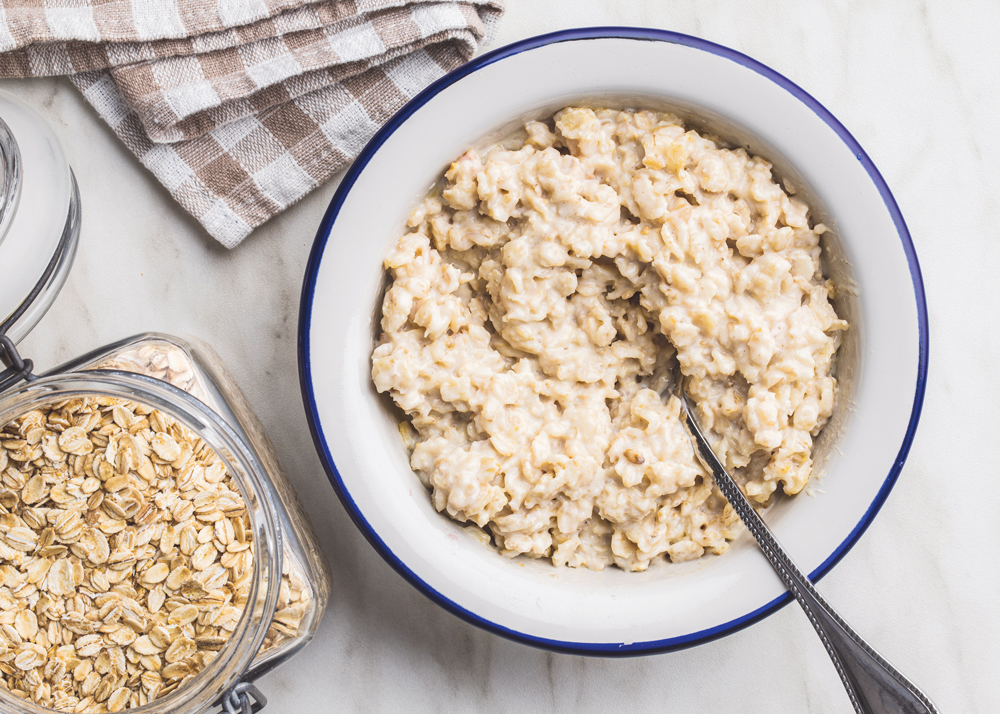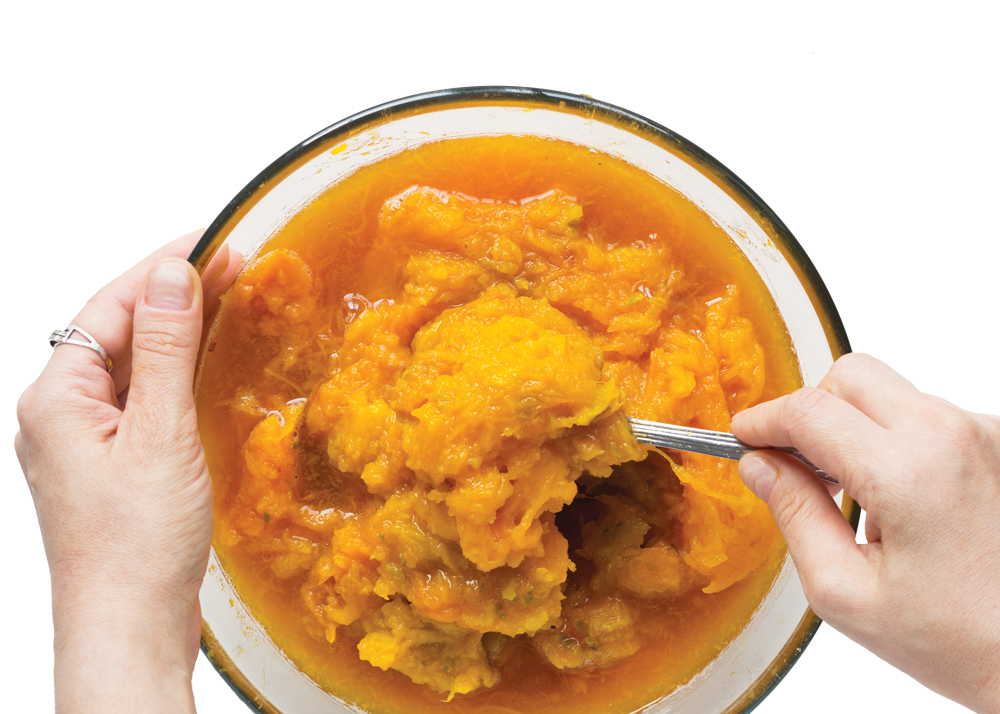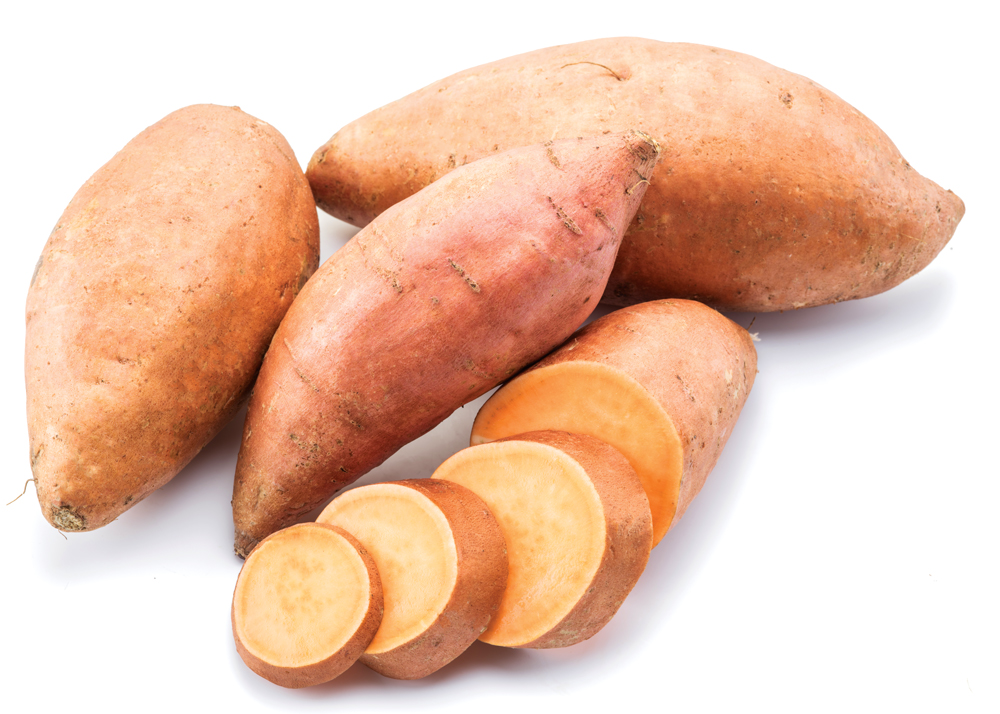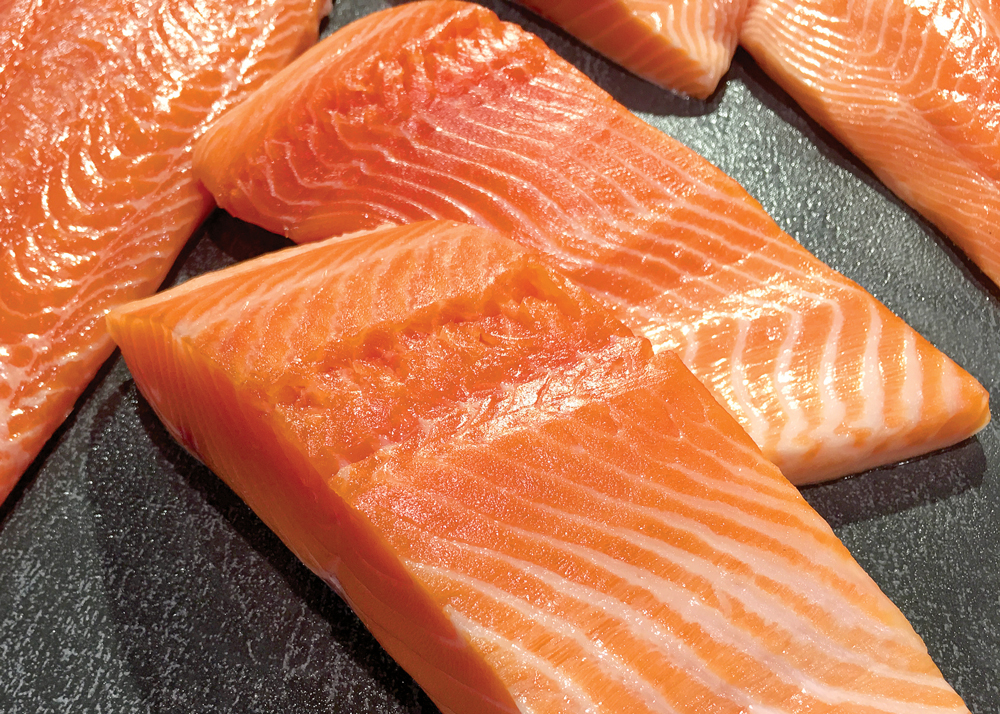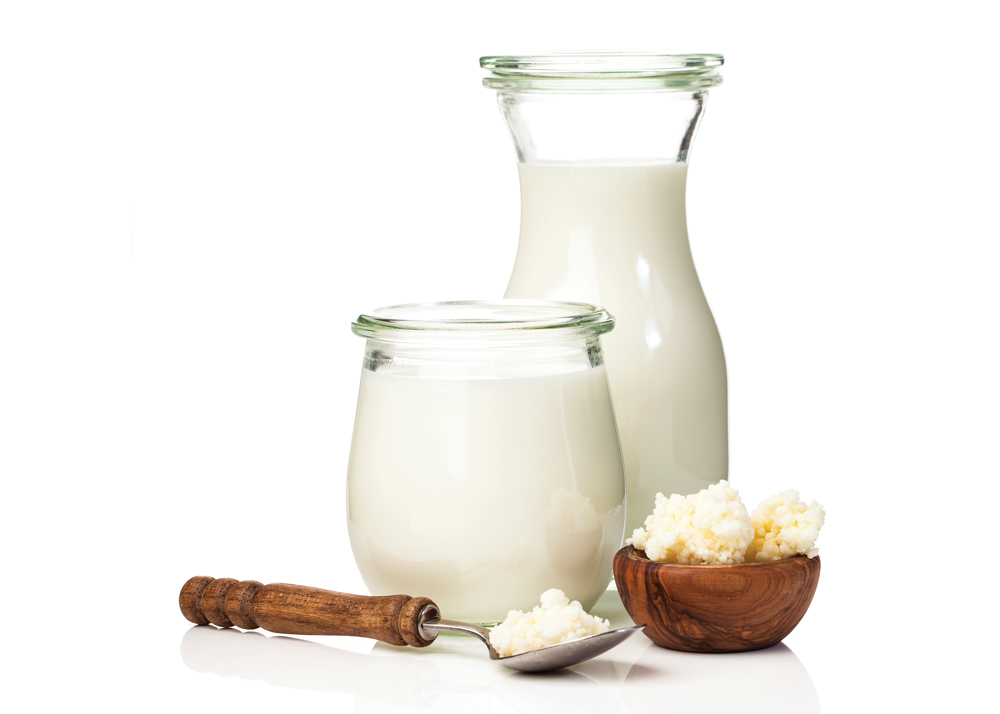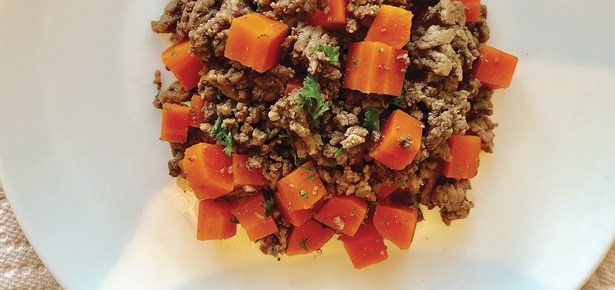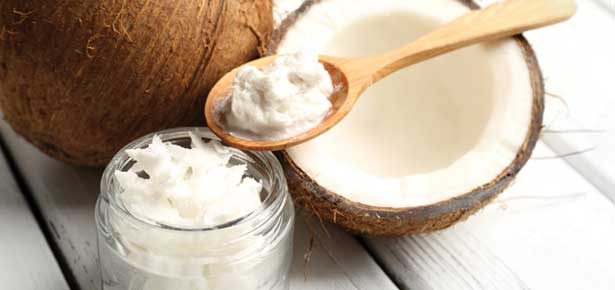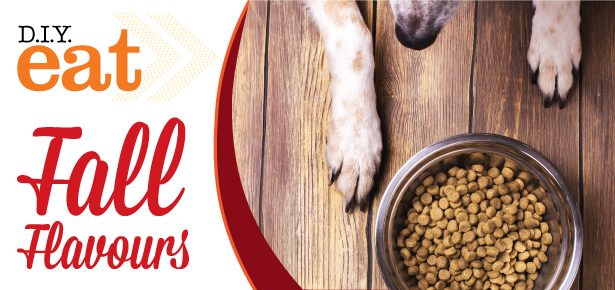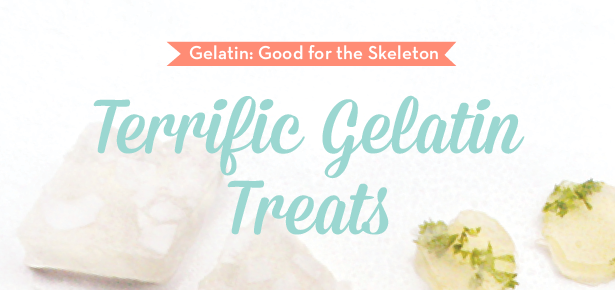

The Healthiest People Foods for Dogs!
Packed with vitamins, minerals, antioxidants and gut-health boosting friendly bacteria, these are human foods you can feel good about sharing with your dog!
*Remember, all treats should make up no more than 10 percent of your dog’s daily diet.
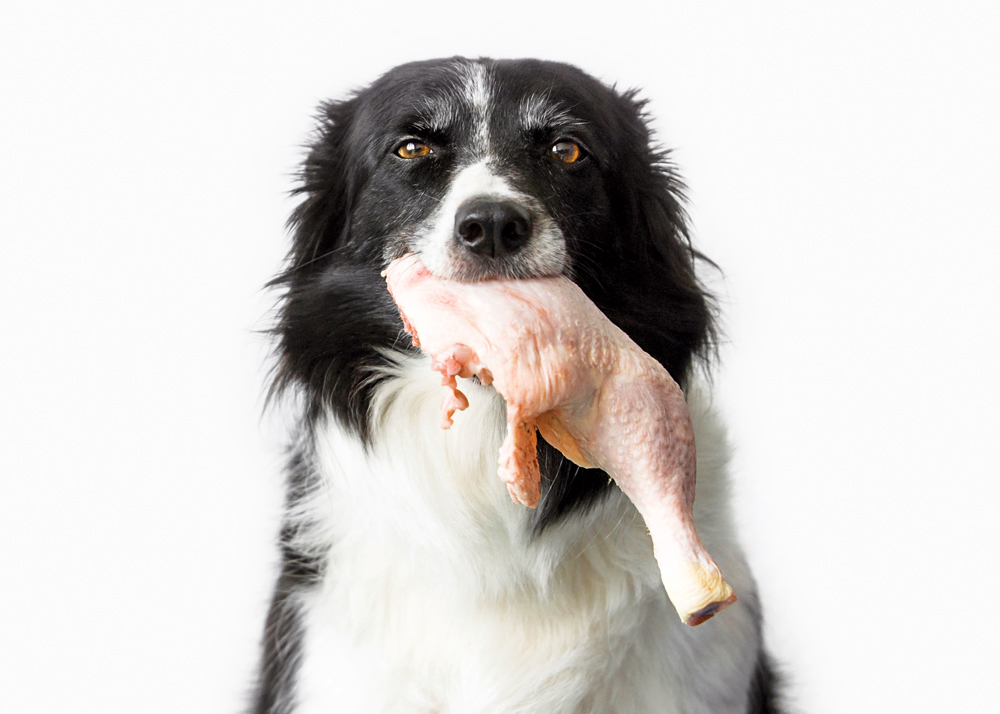
Winner winner, chicken dinner!
Chicken (unless your dog has a food allergy) is always a win where dogs are concerned. If sharing with your dog, choose pieces with no visible fat (fatty foods can cause pancreatitis) and skip the salt and seasonings. Chicken is an excellent, balanced source of amino acids, the building blocks of muscle in your dog’s body.
Blueberries
Blueberries are an antioxidant-rich superfood. In fact, they have the highest amount of antioxidants of any fruit. These little antioxidant powerhouses can prevent and help repair cell damage in humans and canines alike. Dogs tend to love the sweet-tart flavour of blueberries—they’re quite low in sugar—making them a great treat that helps slow the aging process and boosts your dog’s immune system!
Apples
Apples are a super-healthy treat for dogs, containing calcium, vitamin K, vitamin C, and soluble fiber. Dogs can eat green apples as well as red and can eat the apple skin as well. Just avoid feeding a lot of apple cores as they contain seeds and stems. Apple seeds have cyanogenic glycosides which can cause tummy upset and more serious problems if consumed in large quantities.
» An Apple a Day
- Freeze apple slices for your teething puppy
- Wedge apple slices into a Kong
- Make apple popsicles with unsweetened apple sauce and greek yogurt
- Grate some apple on your dog’s dinner
- Take dehydrated apple slices for to-go treats you can share with your dog. (Only feed little bits as dehydrated fruits contain all of the nutrients of the hydrated ones but have no water, so a little goes a long way. Too much can cause tummy upset.)
Oatmeal
Oatmeal is high in fiber and loaded with nutrients, vitamins, minerals, and antioxidants. It’s especially good for your dog’s coat and skin thanks to the vitamin B and linoleic acid it contains.
Thanks to its soluble fiber, oatmeal can regulate blood glucose levels. It can also help regulate bowel movements, especially beneficial for some older dogs—just don’t feed too much as fiber-rich foods in excess can cause stomach upset. And if your dog has wheat or grain sensitivities, it makes a great alternative carbohydrate.
Make sure the oatmeal you feed your dog is unflavoured and unsweetened. Some flavoured oatmeal contains xylitol, which is toxic to dogs. Additions like raisins and grapes are also toxic. And dogs also have a hard time breaking down lactose so skip the milk. Old-fashioned oatmeal is also better for dogs (and for you!) than instant oatmeal as it is less processed and retains more nutritional value.
» General feeding guideline
One tablespoon of cooked oatmeal per 20 pounds of his weight as a treat one or two times a week.
Pumpkin
Pumpkin is a wonderful addition to your dog’s diet. Its slightly sweet taste makes it a favourite, it adds bulk and roughage, and perhaps best of all, it can help settle an upset G.I. track after a bout of canine dietary indiscretion. Canned pumpkin is recommended by many holistic veterinarians to help with upset stomach and digestion. It has a low glycemic index, so it slowly absorbs, helping settle tummy woes. Pumpkin can also help overweight dogs drop pounds by satiating while being low calorie.
…………………………………………………………………………………………………………………
Bright Idea!
Stuff your dog’s Kong with cooked pumpkin (baked, boiled or canned puréed, not pumpkin pie filler which contains spices/sugar). Or go gourmet: Mix the pumpkin with a bit of ripe banana (the perfect use for bananas that are a bit too ripe for your liking!), a spoon of plain, unsweetened yogurt, and/or peanut butter (natural, unsweetened—always check that your peanut butter does not contain xylitol, which is poisonous to dogs). Spoon the mashed mixture into a Kong or other stuffable toy and give it to your delighted dog. You can also pop it in the freezer first for a cool treat perfect for the summer months!
…………………………………………………………………………………………………………………
Sweet potatoes
Sweet potatoes make an excellent, simple, natural treat for dogs. They’re a source of dietary fibre and contain vitamin B6, vitamin C, beta carotene, and manganese. DIY TREAT IDEA: Try slicing Sweet potatoes and dehydrating them in a low-temperature oven for a chewy treat for your dog.
Salmon
Salmon (or salmon oil) is a great source of omega-3 fatty acids for dogs, supporting the immune system and improving your dog’s skin and coat. And some studies have shown omega-3s may help dogs with allergies. Only give your dog cooked salmon as raw salmon can carry a parasite that can make your dog sick.
Kefir
Kefir is a fermented milk beverage that is similar to a drinking yogurt but with even more beneficial bacteria. A great source of probiotics, kefir contains 30 different strains of good bacteria and beneficial yeast, including several major strains of friendly bacteria not commonly found in yogurt. It’s also rich in complex
B vitamins. If your dog has a yeast infection, kefir, with its antibiotic and antifungal properties, can help. The helpful yeasts fight destructive pathogenic yeasts.
For dogs with gastro-intestinal issues or loose bowels, kefir makes an excellent addition to their diet to restore digestive system health. It’s also very helpful after a round of antibiotics. Some studies have even shown kefir to fend off salmonella and E. Coli and kill H. Pylori.
» Start slow and work up to this daily minimum dosage:
Small sized dogs: 1 tsp – 1 Tbsp
Medium sized dogs: 1 – 2 Tbsp
Large dogs: 2 – 3 Tbsp
…………………………………………………………………………………………………………………
As always, check with your veterinarian before making any major changes to your dog’s diet, especially if they are on any medications. Upsetting the vitamin and mineral balances in your dog’s diet can have negative effects on your dog’s health and some medications interact badly with some nutrients. The aim of most dog owners is to give their dogs the best diet possible. Good nutrition coupled with a health care program may result in extending your dog’s life by as much as 15 percent. The suggestions above are not meant to replace your dog’s normal, balanced diet. Rather, they are ideas for alternative treats or for adding a little variety to your dog’s meals.
Check out more people foods for dog's here!
Join the newsletter and never miss out on dog content again!
"*" indicates required fields
By clicking the arrow, you agree to our web Terms of Use and Privacy & Cookie Policy. Easy unsubscribe links are provided in every email.
